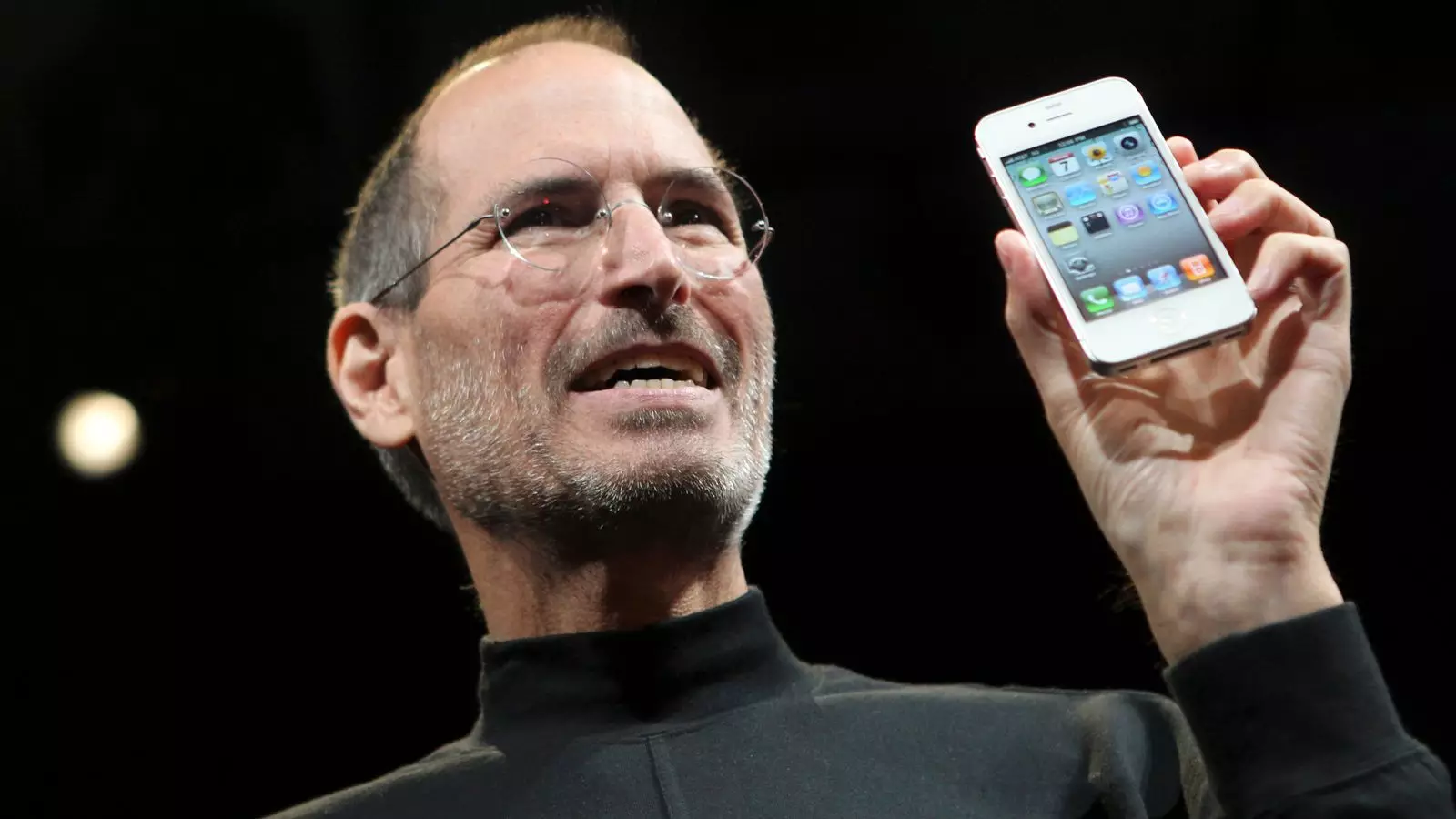The audacity of hope radiates from the latest claims made by Science and Technology Secretary Peter Kyle, likening Chancellor Rachel Reeves to the legendary innovator Steve Jobs. This comparison, rife with implications, raises an intriguing question: Can Reeves bring transformative change to the UK economy akin to Jobs’ renaissance of Apple? As Kyle paints a picture of rejuvenation and record investment in science and technology, the stakes are extraordinarily high. While such aspirations are commendable, one cannot help but ponder whether this vision is merely a façade over an underlying legacy of austerity that Labour inherited from its predecessors.
Kyle’s assertion indicates a promise of fertile ground for innovation. He discusses an allocation of £500 million for each region in England for scientific research, suggesting a new dawn of fiscal responsibility and dedicated investment. However, the parallels drawn with Jobs’ turnaround come with a reality check. Steve Jobs didn’t just pivot existing resources; he reinvented an entire industry by fostering innovation. The British economy, meanwhile, stands burdened by longstanding structural issues exacerbated by past decisions. Is it wise to draw such magnified comparisons without first addressing the very real challenges that lie ahead?
Investment versus Austerity: A Troubling Dichotomy
What remains troubling about the government’s current approach to the economy, even with its shiny new vision, is the specter of austerity. The announcement of increased funding for scientific endeavors will likely ring hollow for millions if it doesn’t translate into tangible benefits for everyday citizens. The tacit acknowledgment that some departments will face budget cuts amid new investments hints at a precarious balancing act.
Can we truly herald this “most we’ve ever spent per pupil” initiative against a backdrop of cuts? The narrative that public spending should be withheld to balance the books is not only outdated but also actively detrimental to society. In a time when educational, environmental, and technological advancements are critical for future generations, clinging to such fiscal constraints feels not only reckless but alarmingly shortsighted. A modern economic philosophy should not inadvertently enshrine inequality into the fabric of public finance.
The Winter Fuel Payment Dilemma
The criticism surrounding the scrapping of universal winter fuel payments serves as an example of social policy failing to align with progressive values. It is commendable that Sir Keir Starmer has pledged to extend eligibility for these payments, yet the broader question remains regarding the sincerity of such policies, divorced as they are from the manifesto that brought Labour to power. Does this reflect a genuine desire for corrective measures, or is it merely a political act to quell unrest while election cycles loom?
In the spirit of Liberalism, it is naive to overlook the painful realities faced by the most vulnerable. The cold winter months are once more a reminder that the fundamental right to warmth during the harsher seasons is a shared responsibility—a collective ethos that any government ought to uphold rather than erode.
Future Innovations: Are They Enough?
As Kyle asserts, allocating resources towards innovations like vaccine technologies and the space sector may promise future employment opportunities. Yet innovation on its own is not foolproof; the critical element is how these advancements will weave into the fabric of society. A superficial boost in funding, void of an inclusive growth strategy, may lead to widening inequality, as those who already stand on new economic frontiers are poised to benefit further at the expense of those left behind.
Innovation should not serve as an excuse for neglecting inclusivity. The echo of past failures looms large; the proverbial wealth gap is a stark reminder that without comprehensive planning—particularly when it comes to social welfare—progressive policies risk faltering. A robust economic strategy must include not only grand visions of tomorrow but also the sensitivity to bind communities today.
A Call for Genuine Leadership
The UK stands at a crossroads where the potential for change is palpable, yet overshadowed by the obstacles that linger from previous regimes. Rachel Reeves has the opportunity to reshape this narrative. However, the execution of visionary ideas will determine if they remain abstract concepts or evolve into actionable, lasting reform. The legacy of Labour, walked upon while navigating profound socio-economic discrepancies, ought to pivot towards authentic responsibility and sincerity in policy—qualities destined to resonate with a populace yearning for substantive change.
In the age of political cynicism, a return to core values—equity, investment in communities, and the true spirit of innovation—are the hallmarks that can potentially resurrect the economy without succumbing to the horrors of austerity. These ideals must not only inform fiscal decisions but act as the pulse that drives a new Labour government forward.



Leave a Reply